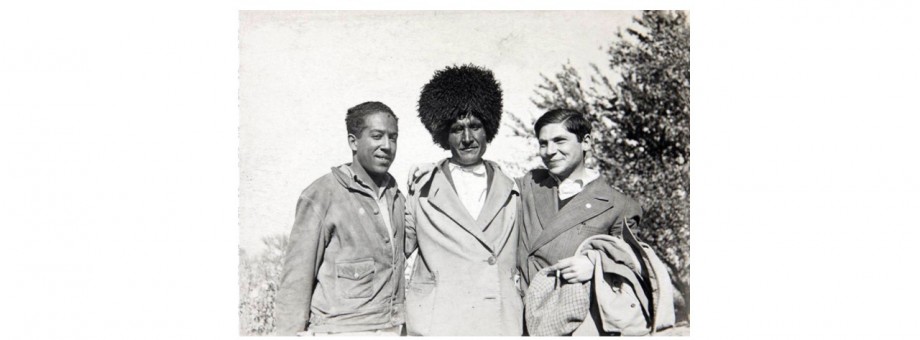LANGSTON HUGHES: A JOURNEY THROUGH SUNSHINE-RICH TURKMENISTAN

The capital of Turkmenistan is today celebrating its 140th anniversary, and at the other end of the world the U.S. city of Albuquerque is marking Ashgabat Sister City Day.
Among the numerous visitors who have ever come to our sun-drenched country, American citizen, poet and writer Langston Hughes does deserve a mention. In 1932, the innovator of the then-new literary art form called jazz poetry crossed the ocean and later, from October to December traveled through Central Asia.
Hughes visited the cities of Tashkent, Bukhara, Samarkand, and Ashgabat. Upon arrival in the capital of Turkmenistan by train, he abandoned the touring group bound for the city of Turkmenbashi (formerly Krasnovodsk) and found himself standing on the Ashgabat railway platform all alone.
Langston Hughes could speak neither Turkmen nor Russian. Communicating to a station worker through body language and hand gestures, he made himself understood that he needed an interpreter. An editor of one of the Ashgabat-based newspapers came to the rescue and greeted the foreigner in French, “Bonjour, comrade!” The traveler was provided with hotel accommodation and now had an assistant.
The writer described his adventures in a book entitled ‘A Negro Looks at Soviet Central Asia’ originally published in 1934. Later, the book was republished and is better known under the title ‘I Wonder as I Wander’.
Impressed by Ashgabat and the vast expanses of the Karakum Desert, Langston Hughes wrote a poem.
Anybody
Better
Than nobody.
In the barren dusk
Even the snake
That spirals
Terror on the sand –
Better than nobody
In the lonely
Land.
The writer continued his travels through Turkmenistan in Merv (Mary). Here are excerpts from his book:
“In the autumn, if you step off the train almost anywhere in the fertile parts of Central Asia, you step into a cotton field or into a city or town whose streets are filled with evidences of cotton nearby.
On all the dusty roads, camels, carts and trucks loaded with the soft fiber go towards the gins and warehouses. Outside the towns, oft-times as far as the eye can see, the white balls lift their precious heads.
The same thing is true of the southern part of the United States. In Georgia and Mississippi and Alabama, you ride for hundreds of miles through fields of cotton bursting white in the sun. Except that on our roads there are no camels. Mules and wagons bear the burdens.”
“It was the height of the picking season when I visited the Aitakov Kolkhoz (the collective farm was named after Nedirbai Aitakov) near Merv. The Turkmen director took us to the fields where, in the bright morning sun, a brigade of women were picking cotton, moving rapidly through the waist-high rows.”
“It was dusk when we walked across the fields to the clusters of buildings that formed the center of the kolkhoz. They were preparing a guest-room for us, spreading beautiful rugs on the floor that we might sit down. Soon guests began to arrive, teachers from the village school came, and then the men who had been out on the irrigation works all day. They came in twos and threes and larger groups until the room was full.
Chainiks of teas were brought, and a half-dozen bowls that were shared by all. As the tea-pots emptied, they were passed continually back and forth from hand to hand to the door where a man replenished them from the water boiling over an open fire outside in the dark.”
“In the morning, Shura, the little son of the Russian woman, came. …They took me with great pride all over the barnyard. Shura, the little white boy, and the darker Turkmen boy took me by the hands and insisted that I see the oven for making bread.
I went, but I was not thinking particularly about the oven. I was thinking, as I looked at the two small boys, “Little Russian boy and little Turkmen boy, you will never know the distorted lives full of distrust and hate and fear.”
The American writer brought home photographs and warm memories of the Turkmen people’s generous hospitality from his long journey.
Svetlana CHIRTSOVA
Langston Hughes: A Journey through Sunshine-rich Turkmenistan


 NEWS
NEWS